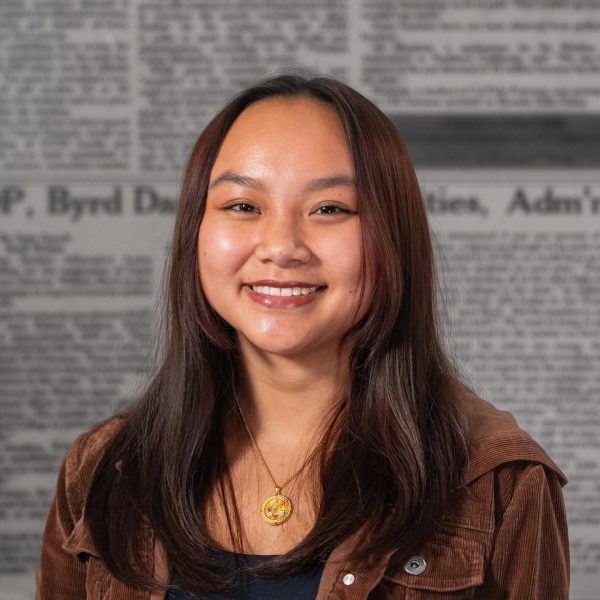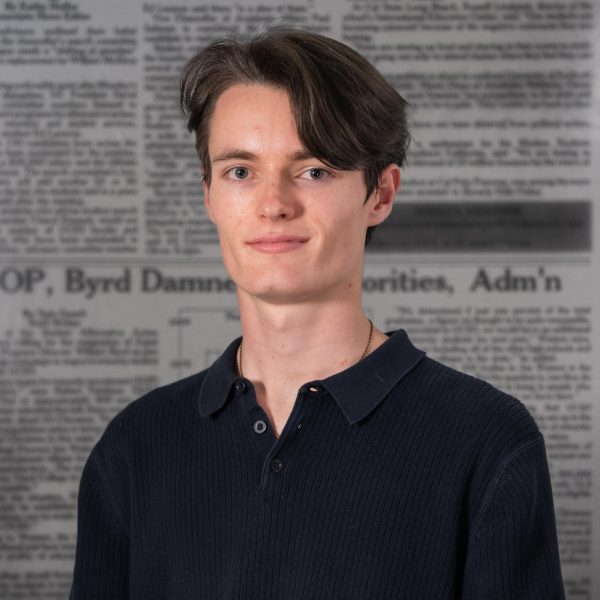In honor of Asian American and Pacific Islander Heritage Month, Asian, Pacific Islander, Middle Eastern, and Desi American Programs and Services at UC San Diego partnered with The Loft to screen “New Wave,” an intimate documentary exploring the New Wave subculture of Orange County’s Vietnamese community during the 1980s. According to director Elizabeth Ai, “New Wave” was a way to capture the previous generation of rebels and introduce them to her daughter, who was born right when the project began. But the film quickly grew into a deeply personal exploration of identity, generational trauma, and unspoken secrets, told through the stories of three individuals: Lynda Trang Dai, DJ BPM, and Ai herself.
I am the daughter of Vietnamese refugees, born and raised in the Little Saigon enclave of Orange County — the very backdrop of the documentary. My entire life has been defined by my Vietnamese identity: I attended a Catholic school from kindergarten to eighth grade that was 89% Vietnamese, went to and graduated from Viet Ngu, a Vietnamese language school, and even participated in Thi Do Vui — Vietnamese youth jeopardy. At one point, my Catholic school hired THH Sandwiches, a famous banh mi chain in Orange County, to cater our school lunches.
But being surrounded by Vietnamese culture didn’t necessarily mean I embraced it. In fact, I often found myself frustrated by rigid expectations, emphasis on conformity, and the ways I felt boxed in by community, family, and tradition. For much of my adolescence, I pushed away my Vietnamese identity, resenting that it felt inescapable. There was even a period in middle school when I refused to eat the Vietnamese lunches my grandmother packed for me — instead, sitting in hunger while I watched, jealous, as my classmates opened Lunchables and ate fast food. I wanted distance. I wanted space to define myself outside of my ethnicity.
It wasn’t until I moved away for college, suddenly outside that enclave, that I began to see my upbringing differently. While San Diego’s diverse environment is exciting and new, I couldn’t help but look back and yearn for the community I had in Little Saigon. I missed the food and the reckless driving down Bolsa Avenue — I even missed going to Vietnamese Mass on weekends. What once felt suffocating now felt grounding. In the absence of that community, I began to understand how deeply it had shaped me, and how much of it I had taken for granted.
Watching “New Wave” felt like peeling back the layers of that identity, seeing my community through a new lens — one that was glamorous, rebellious, and full of longing. The documentary doesn’t just capture a moment in time; it captures a feeling I know intimately: that tension between reverence and resistance, between wanting to belong and wanting to break free. I left The Loft and immediately called my parents to ask about their own relationship with New Wave music, and to learn more about the unshared histories of their refugee past.
My mom and dad missed the peak of the New Wave scene in the 1980s, immigrating to the United States in 1989 and 1991, respectively. But they had caught glimpses of this vibrant Vietnamese American culture from afar: hearing the music back in Vietnam, where bootleg tapes and pop culture whispers filtered in. According to my mom, Vietnamese immigrants were drawn to New Wave because it bridged the gap between older Vietnamese traditions and emerging American identities — a sentiment echoed throughout the documentary. She remembers it being especially liberating for women, who traded the modesty of an áo dài for short skirts and flashy outfits that symbolized freedom and self-expression.
In the midst of the chaotic and often painful process of assimilation — marked by financial hardship, long hours of labor, and intergenerational tension — New Wave offered a rare space for joy. It gave young immigrants an outlet, a way to build community and assert their individuality through electronic music, fashion, and dance, rather than the restrained performances of traditional Vietnamese music.
The documentary also powerfully explores themes of family absence, particularly in Ai’s reckoning with her relationship with her mother. With the burden of financially supporting the entire family, Ai’s mother spent most of her time away, running multiple nail salons by day and gambling at night. Her story is achingly familiar. My dad spent his first six years in America without his father, who, unable to find work in California due to the language barrier, moved across the country to work an his brother’s restaurant, Phở Bằng, in New York’s Chinatown. Similarly, my mom spent her adolescence acting as a second mother to her two sisters and three cousins, all while trying to finish high school. The adults in her household worked around the clock, a sacrifice that shaped their children’s lives in ways both spoken and unspoken.
In celebration of AAPI Heritage Month, “New Wave” offered something deeper than a history lesson — it offered recognition on the most personal level. While Asian representation in Western media has grown in recent years, I have never felt this level of media recognition before. I saw my hometown on screen; I heard voices that sounded like that of my parents; and I saw versions of the people I grew up with: complicated, expressive, defiant, and real. This documentary didn’t try to universalize the Vietnamese American experience. Instead, it embraced specificity, and in doing so, it told a story that felt more honest than anything I’ve seen in mainstream media. As someone who once struggled with my Vietnamese identity, watching “New Wave” felt like looking into a mirror that I didn’t know I needed. It reminded me that our stories, especially the messy, joyful, and in-between ones, are worth telling. There’s power in finally seeing yourself, your community, and your history reflected back at you with clarity and care.













Phuong Nguyen • Jun 5, 2025 at 12:41 pm
Reading this article made me feel truly seen and deeply moved-it touched me to my core and even brought a few tears to my eyes. Thank you .